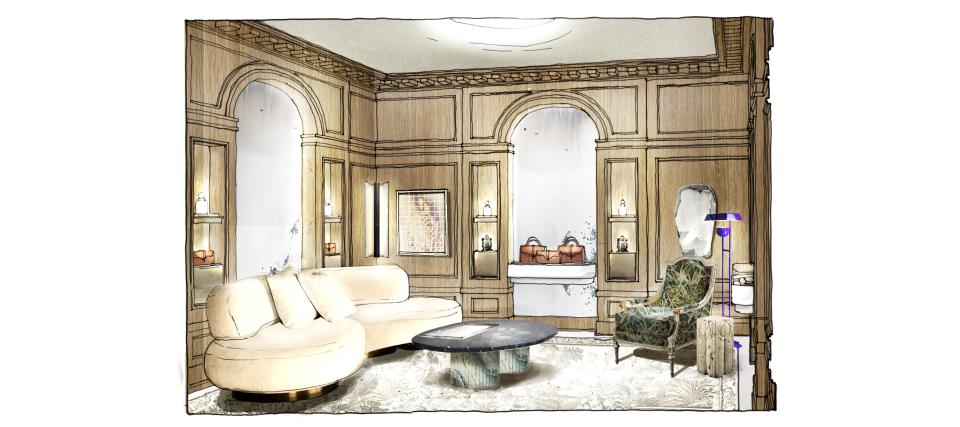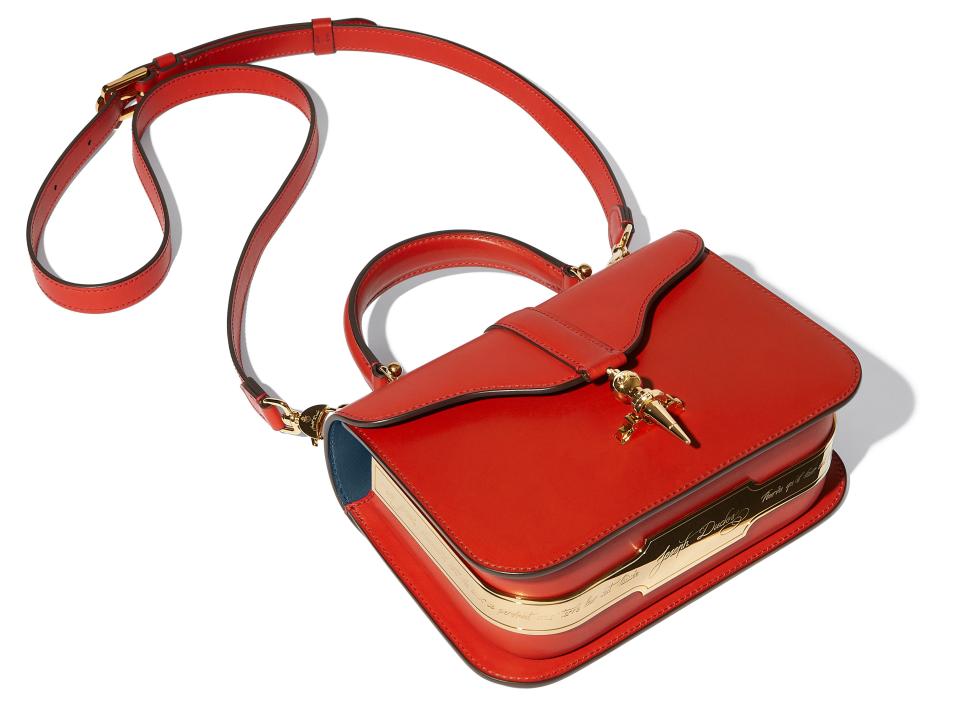EXCLUSIVE: Moynat’s Former Designer Is Helping Revive a Leather Brand From 1754
- Oops!Something went wrong.Please try again later.

Suggesting it’s never too late to revive a heritage brand, a French entrepreneur is bringing back Joseph Duclos, which furnished French royalty with the finest leather in the late 1700s, employing natural tanning methods and the purest spring-fed water.
Heading up the design of leather goods, jewelry and fragrances is Ramesh Nair, the designer conscripted a decade ago by Bernard Arnault to bring back Moynat, a 19th-century trunkmaker that is now a purveyor of luxurious handbags.
More from WWD
Nair’s first collections for Joseph Duclos will be showcased in a flagship boutique slated to open on Sept. 24 at 54 Rue du Faubourg Saint-Honore, with small leather goods, fragrances and other items available on an e-shop.
It’s the first volley for the start-up, which ultimately hopes to export its brand story — hinged on the finest French materials and sustainable savoir-faire — to an international audience.
Joseph Duclos is backed by French businessman, financier and art collector Franck Dahan, chief executive officer of Monolith Investments and a member of the acquisitions committee at Centre Pompidou. The venture reunites Nair with Emmanuelle Voisin, formerly an executive at Moynat, who is now general manager of Joseph Duclos.

Mark C. O'Flaherty
In an exclusive interview, they outlined a mission to preserve rare materials, knowledge and craft skills in France, while capitalizing on what they describe as a hunger in the market for exclusive, artisanal products with an authentic back story.
“The craftsmanship is part of the creativity and that’s something we need to fight for,” said Nair, noting that each Joseph Duclos bag will be numbered and bear the name of the artisan who made it. “We’re doing bags that will last for generations.”
Joseph Duclos, a merchant from Toulouse, operated in pre-handbag times, and his tannery, known as La Manufacture Royale de Lectoure, obtained royal warrants from French King Louis XV for its exceptional leathers, which were used primarily for furnishings and wall coverings. The French military also employed the leather for footwear and jerkins — close-fitting, usually sleeveless garments worn by men in those times.
The Duclos tannery stopped its activity more than a century ago, its washing pools now decorative fish ponds. While the site is being transformed into a luxury hotel, Nair was able to visit the factory building and glean inspiration from the remaining tools of the trade, including sticks made with oak and birch bark for stirring dyes.

Courtesy
In lieu of starting a new tannery, Nair found three suppliers that focus on top-quality leather and eco-friendly tanning methods, which limits the range of colors that are possible. He noted France has among the strictest anti-pollution laws in Europe and a reputation for flawless hides, as barbed-wire fences are prohibited.
While Nair is vegetarian, he has a deep appreciation for quality leathers, flicking through photos of caramel-colored Limousine cows, one with a butterfly on her face, and explaining that in all the tanneries he works with, hides are transported on shoulders to minimize damage, and then polished and brushed by hand.
Without handbag archives to draw upon, Nair visited museums and delved into French military costumes from the time of Duclos. The golden braids on ceremonial jackets inspired the pendulum-like closures, while he transposed the hand-molded leather used to make gunpowder sacks for a brick-shaped messenger style with a soft flap.
His structured Diane bag, meanwhile, draws inspiration from 18th-century coin purses, and certain elements from 1960s aviator cases. It is realized using traditional and painstaking French saddlery techniques, including exposed edges that are hand-painted and -polished.

Courtesy
According to Voisin, Nair was the only designer she thought of who “could really embody the project as its global creative director,” she said, lauding his passion for rare craft skills and uncompromising standards of quality and execution. The design challenge was to create timely and timeless products using 18th-century codes, she noted.
Nair tracked down artisans who are designated as Les Compagnons du Devoir, a government-sanctioned training scheme for a variety of manual trades, including leather working. One such specialist will be stationed permanently at the new Paris boutique to make special orders.
Handbags at Joseph Duclos are expected to retail from about 2,000 euros to 6,000 euros, some of them in limited series. The five scents were developed by independent perfumer Nathalie Feisthauer, who focused on natural ingredients that echo the brand history and spirit.
Voisin said the next step in Joseph Duclos’ development will be to open a shop-in-shop at a Paris department store before expanding in the rest of Europe, Asia, The Middle East and the U.S.
Nair brings a wealth of experience to the project. After studying fashion design at FIT in New York, National Institute of Fashion Technology in New Delhi and IFM in Paris, Nair worked on projects with Yohji Yamamoto and Christian Lacroix haute couture, in addition to creating his own design studio.
Moynat recruited him from Hermès, where he worked for a decade as assistant to Martin Margiela for women’s wear, and later Jean Paul Gaultier, developing leather goods, accessories and jewelry for both permanent and runway collections, including the Paris Bombay, Birkin Shadow and Jypsiere bags.
According to Nair, the Joseph Duclos project is about not only reviving a name, but also exalting an epoch when the foundations were being laid for French craftsmanship and excellence.
See also:
Sign up for WWD's Newsletter. For the latest news, follow us on Twitter, Facebook, and Instagram.

